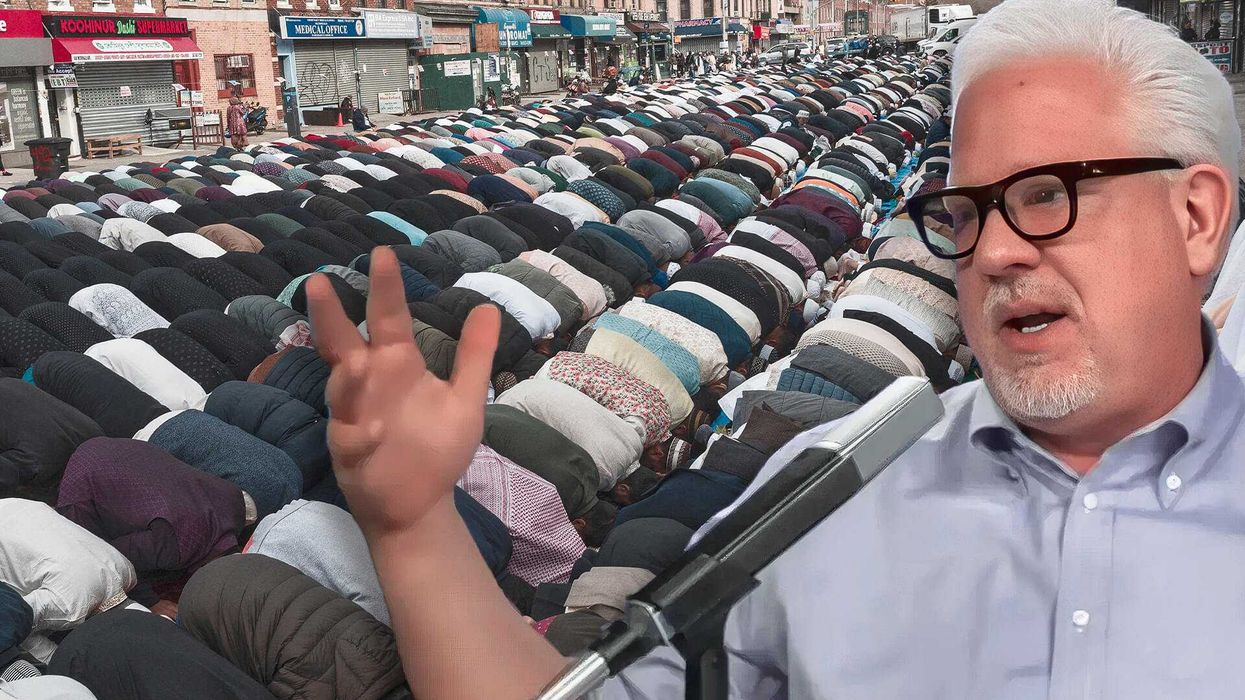
© 2025 Blaze Media LLC. All rights reserved.
Is peace finally coming to the Korean peninsula?
North Korean “Supreme Leader” Kim Jong Un and South Korean President Moon Jae-in held a rare summit between the two nations Friday, in which both leaders crossed the demilitarized zone that divides the Korean peninsula.
The Korean leaders pledged to continue talks on “complete denuclearization,” among other issues involving potential unification and the bolstering of trade and diplomatic relations.
It was a welcome change in diplomatic posture, given the uneasy and hostile rhetoric we’ve come to expect from Pyongyang. And President Trump played a major role in ensuring that the summit became a reality.
The South Korean foreign minister credited President Trump with bringing the regime in Pyongyang to the negotiating table.
"Clearly, credit goes to President Trump," South Korean Foreign Minister Kang Kyung-wha told CNN. "He's been determined to come to grips with this from day one."
But before we start handing out Nobel Peace Prizes to all parties involved and guaranteeing “peace for our time,” it’s worth waiting to see what happens next on the Korean peninsula, especially given Pyongyang’s history of tyranny and deception.
North Korea has been an ideologically Stalinist and viciously anti-American state since its founding in 1948 under Kim Jong Un’s grandfather, Kim Il Sung. The regime’s very purpose for existing — the basis for the Kim dynasty’s rule in the eyes of North Koreans — is to serve as a bulwark against America and the “imperial West.” Moreover, North Koreans are propagandized to believe that the source of all of their problems is U.S. foreign policy and U.S. meddling.
A good indicator to see if the North Korean regime is serious should come in the form of its internal state media broadcasts. If Pyongyang changes its approach to the United States, then perhaps its rulers are indeed willing to change their messaging about America and enact political, economic, and social reform.
But for now, North Korea remains a slave state that starves and executes its citizens on a regular basis. Anyone who crosses Kim Jong Un usually ends up dead, and that includes members of his own family. “Rocket Man” has developed a reputation as a ruthless killer who will do anything to ensure that he remains on the throne. Before celebrating his diplomatic outreach, we should wait until we see some real reforms coming out of Pyongyang.
Moreover, the latest inter-Korean summit isn’t actually an unprecedented development.
The first post-Korean War summit occurred in June 2000, between Kim Jong Un’s deceased father, Kim Jong Il, and former South Korean President Kim Dae-jung. It had been 47 years since the 1953 armistice agreement that served as the de facto end to the Korean War.
The first summit concluded with the release of a joint Korea statement calling for “mutual understanding, developing inter-Korean relations and achieving peaceful reunification.”
A second inter-Korea summit happened in 2007 and produced similar language. However, this time, North Korea’s nuclear program was added to the agenda.
Since then, North Korea has continued to advanced its nuclear weapons almost completely undeterred. The inter-Korea summits did not end in unification, but further distance and a rogue regime hell-bent on acquiring deliverable nuclear weapons.
There’s also a major issue with South Korea, which has served as an appeaser to the North for decades. Through its “sunshine policy” (which continues to this day), South Korea has time and again heavily subsidized the North Korean economy in exchange for peace commitments. South Korea has at times refused to respond to direct kinetic action against its service members. In 2010, a North Korean sub torpedoed a South Korean naval vessel, the ROKS Cheonan, killing 46 people on board and wounding 56 more. South Korea never even responded to the attack.
Even if the North Koreans ultimately “commit” to denuclearization and peace talks, the regime in Pyongyang should not be trusted until measurable results are produced. The Kim dynasty has a long history of lies and deception, a tactic that has been used to buy time to advance North Korea’s nuclear program and nuclear interests.
The United States, China, South Korea, and North Korea all have big roles to play in the days moving forward. But to protect American interests, President Trump should seek to “trust but verify” measurable, transparent results before welcoming North Korea’s rhetorical diplomatic advances.
#mc_embed_signup{background:#fff; clear:left; font:14px; }
/* Add your own MailChimp form style overrides in your site stylesheet or in this style block.
We recommend moving this block and the preceding CSS link to the HEAD of your HTML file. */
Want to leave a tip?
We answer to you. Help keep our content free of advertisers and big tech censorship by leaving a tip today.
Want to join the conversation?
Already a subscriber?
more stories
Sign up for the Blaze newsletter
By signing up, you agree to our Privacy Policy and Terms of Use, and agree to receive content that may sometimes include advertisements. You may opt out at any time.
Related Content
© 2025 Blaze Media LLC. All rights reserved.
Get the stories that matter most delivered directly to your inbox.
By signing up, you agree to our Privacy Policy and Terms of Use, and agree to receive content that may sometimes include advertisements. You may opt out at any time.






